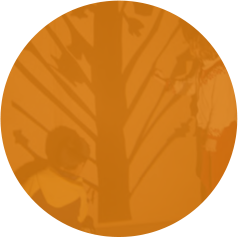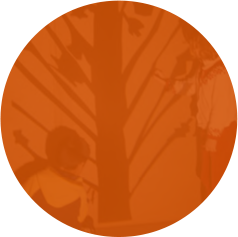Our History. Our Philosophy. Our Impact.
What is the North American Reggio Emilia Alliance?
We exist to closely connect the practices and philosophies of the town of Reggio Emilia, Italy, to its advocates and education professionals in the United States and Canada and those individuals to each other. We do it through sharing knowledge, community-based professional development, and a unique, direct relationship with Reggio Emilia’s resident experts. We are a network of educators, parents, and advocates seeking to elevate both the quality of life and the quality of schools and centers for young children. We envision a world where all children are honored and respected for their potential, capabilities, and humanity. Our mission is to build a diverse community of advocates and educators to promote and defend the rights of children, families, and teachers of all cultures through pedagogy that innovates.









